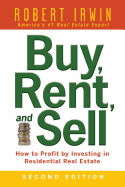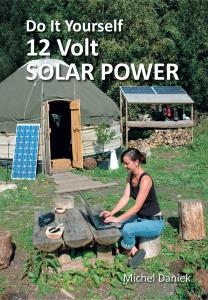
Considering asset diversification and a greater degree of self-reliance? Real estate investment strategies are worth exploring. Property ownership presents opportunities for generating additional income, building long-term wealth, and potentially supporting self-sufficiency goals. However, making informed decisions necessitates a thorough understanding of real estate market dynamics.
From finding the right investment properties that align with your goals to understanding real estate investment’s financial and regulatory aspects, becoming a successful investor takes planning and knowledge. If you’re a homeowner focused on self-sufficiency, understanding the unique opportunities and challenges of real estate investment is essential.
This article will break down the most promising real estate investment strategies for self-sufficient homeowners, providing the insights you need to make informed decisions that can enhance financial security and reduce your reliance on external resources.
Exploring Investment Options Tailored to Self-Sufficiency
When seeking self-reliance through real estate investment strategies, choosing the right properties for your goals is a must. Let’s explore options that best align with your pursuit of greater independence:
Rental Properties: Building Wealth and Supporting Your Lifestyle
Owning rental properties can be a powerful path to generating passive income to support self-sufficient living. Selecting properties in locations with strong rental demand and long-term growth prospects can provide a steady income stream. Consider properties in areas with access to resources valuable to your self-sufficiency goals, such as proximity to amenities or land for agricultural projects.
House Hacking: Live Rent-Free and Build Equity
House hacking involves purchasing a multi-unit property and residing in one unit while renting out others. This strategy can offset or even eliminate your mortgage, freeing up funds for self-sufficiency upgrades.
Examples include turning part of your land into an organic garden and installing solar panels, or rainwater collection systems. Before house hacking, it’s essential to research local ordinances on renting and multi-unit properties.
REITs and Crowdfunding: Lower Barrier to Entry Investments
If you want to participate in real estate without direct property ownership, consider Real Estate Investment Trusts (REITs) or crowdfunding. REITs allow you to invest in a portfolio of properties, while crowdfunding offers fractional ownership of potentially larger projects.
These options provide diversification and less hands-on management but still contribute to building your investment portfolio and potentially supporting your self-sufficiency journey.
The careful financial planning of real estate investments can significantly impact your ability to achieve greater self-reliance. In the next section, we’ll examine how to finance your real estate investments in a way that supports financial freedom and your self-sufficiency goals.
Financing Your Real Estate Investment Journey

Successful real estate investment strategies involve more than just choosing the right property. Understanding different financing options and their implications on your overall financial picture is absolutely necessary for achieving self-sufficiency goals.
Strategies for Smart Financing
- Leveraging Home Equity: If you already own a home, you might be able to access its equity through a home equity line of credit (HELOC) or a home equity loan. These options can provide funds for a down payment or renovations on your investment property. Make sure to weigh the risks of increased debt against the potential return on your investment for a sound financial decision aligned with your self-reliance objectives.
- Investment-Specific Mortgages: Mortgages for rental properties often differ from traditional mortgages in their terms, potentially requiring higher down payments or different interest rates. Thoroughly research and compare options to find the most suitable loan for your investment strategy and risk tolerance.
- Tax Considerations: Real estate investors may be eligible for tax deductions, credits, and depreciation benefits that can impact long-term returns. Consulting a tax professional specializing in real estate investments can help you maximize these benefits and make financially informed choices while supporting your self-sufficient lifestyle.
Market Analysis and Mitigating Risk
Understanding the economics and potential risks associated with your real estate investment strategies is paramount for long-term success. Here are key areas to focus on:
Essential Market Research for Self-Sufficient Investors
- Location: Research neighborhoods with favorable rental demand, low vacancy rates, positive development trends, and proximity to resources that support your self-sufficient goals.
- Property Types: Analyze the tenant pool, maintenance needs, potential resale value, and overall potential returns for different property types (single-family, multi-family) when considering how your investment supports your self-sufficiency objectives.
- The Impact of Economic Trends and Regulations: Interest rates, tax policies, and local zoning laws can heavily impact your investment performance. Stay up-to-date on current economic conditions and any regulatory changes that could affect your long-term plans.
Beyond understanding market trends and mitigating risks, savvy investors also recognize the value of sustainable land development strategies that can enhance both property value and long-term resilience
Enhancing Your Investment Property with Permaculture Design Principles
Implementing permaculture design on your investment property can significantly increase its value and appeal to tenants seeking a sustainable lifestyle. Creating a productive landscape with edible gardens, renewable energy systems, and water-wise features not only enhances self-sufficiency but also attracts environmentally conscious tenants willing to pay a premium.
Explore Sustainable Land Development Strategies with Living Landscapes
Expanding Your Real Estate Investment Knowledge

Successful real estate investing for self-sufficient homeowners requires continuous learning and staying informed about current strategies. One resource that delves into the fundamentals of residential real estate is Robert Irwin’s book, Buy, “Rent, and Sell: How to Profit by Investing in Residential Real Estate.”
This book explores established techniques like buy-and-hold investing alongside strategies tailored to the evolving real estate market. It also covers the financial considerations of real estate investment, including navigating financing options and understanding the tax implications. Robert Irwin shares insights gained from his extensive experience in the residential real estate sector, providing practical advice relevant to current market conditions.
Remember that every investor’s situation is unique, so it’s important to supplement your learning with research on local market conditions and regulations to ensure informed decisions that align with your financial and self-sufficiency goals.

Learn More from Robert Irwin’s Book on Alibris.com
Why Real Estate Investment Strategies Matter for Self-Sufficiency
Throughout this article, we’ve explored how owning real estate can pave the way to financial independence and enhance your self-sufficient lifestyle. From selecting the right investment properties that align with your goals to navigating market dynamics and financing strategies, real estate investment offers a unique avenue toward achieving your long-term vision.
By acquiring rental properties, exploring house hacking techniques, or participating in REITs and crowdfunding, you create opportunities to generate additional income streams. This income can be a powerful tool for reducing your reliance on external resources and reinvesting in self-sufficiency projects. Strategic property investments can lead to lower overall costs, fund resource-generating upgrades, and foster a community-driven, independent lifestyle.
Real estate investment is a tangible, long-term approach to taking control of your financial future while unlocking the potential for greater self-reliance. The choice is yours to diversify your assets and actively build the life you envision.
Disclosure: This article contains affiliate links to products. We may receive a commission for purchases made through these links at no additional cost to you. All opinions are our own and we only recommend products we believe in that align with the topic and our readers’ interests.



